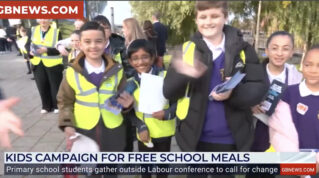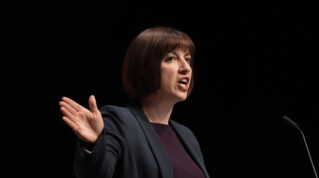New children’s minister Josh MacAlister has been handed a beefed-up brief, taking responsibility for safeguarding, counter-extremism in schools and maintenance of the education estate.
The Department for Education has updated its ministerial policy responsibilities after the reshuffle saw new ministers for school standards, children and families and early education appointed.
MacAlister, a former teacher who led the last government’s children’s social care review, has picked up an expanded brief after taking on the children and families minister role.
He will now oversee 17 policy areas, instead of the 13 that fell under previous children’s minister Janet Daby.
The new additions include safeguarding, prevention of serious violence and counter-extremism in schools and the maintenance and environmental sustainability of the education estates.
These responsibilities previously fell under the early education minister brief, held by Stephen Morgan, until he was replaced by Olivia Bailey. However the “online safety” responsibility is no longer listed.
Policies moved between briefs
Bailey’s portfolio now includes best start family hubs and parenting, which have moved from the children’s brief, while she also picks up school uniform – previously the schools minister’s responsibility.
It also looks like a new responsibility has been added for the holiday activities and food (HAF) programme. The government recently extended the scheme’s funding for another three years.
But it appears the “use of research, science and evidence within the Department for Education” responsibility has been ditched from the early year’s brief.
Phillipson’s responsibilities remain unchanged, as do those of the only other remaining minister with responsibility for some schools issues – skills minister Jacqui Smith.
Here is the full list of minister responsibilities, with any new briefs for the position in bold.
Bridget Phillipson, secretary of state
- early years and childcare
- children’s social care
- teacher quality, recruitment and retention
- the school curriculum
- school improvement
- academies and free schools
- further education
- apprenticeships and skills
- higher education
Georgia Gould, school standards minister
- school improvement, intervention and inspection (including links with Ofsted)
- regional improvement for standards and excellence (RISE)
- special educational needs and disabilities (SEND) and high needs
- initial teacher training and incentives
- teacher retention including the early career framework and teacher training entitlement
- school leadership
- school governance
- teacher pay and pensions
- school support staff
- core school funding
- pupil premium
- qualifications (including links with Ofqual)
- curriculum and assessment, including the curriculum and assessment review and creative education
- access to sport, arts and music in education, working with other departments
- alternative provision
- admissions
- faith schools
- school transport
Josh MacAlister, children and families minister
- children’s social care
- children in care and children in need
- looked-after children
- child protection
- adoption
- kinship care and foster care
- care leavers
- children’s social care workforce
- unaccompanied asylum-seeking children
- single unique identifier for children
- local authority improvement
- family support
- safeguarding
- prevention of serious violence in schools and post-16 settings
- counter extremism in schools and post-16 settings
- maintenance and improvement of the education estate
- environmental sustainability in the education sectors
Olivia Bailey, early education minister
- early years education including for children with special educational needs and disabilities (SEND)
- childcare and the home learning environment
- early years workforce
- early communication skills and early intervention
- Best Start Family Hubs and parenting
- breakfast clubs
- school food, including free school meals
- holiday activities and food (HAF) programme
- school attendance, including register of children who are not in school
- mental health support in schools
- behaviour, preventing bullying and exclusions in schools
- school uniform
- independent schools
- use of data, digital technology and artificial intelligence (AI) in education
Jacqui Smith, skills minister
- technical qualifications, including T Levels
- higher technical education (levels 4 and 5)
- adult education, including basic skills and combined authority devolution
- careers advice and support for young people not in employment, education or training (NEETs) (including the Careers and Enterprise Company)
- apprenticeships, including the growth and skills levy
- Technical Excellence Colleges
- local skills improvement plans
- governance, intervention and accountability of further education colleges
- funding for education and training, provision and outcomes for 16- to 19-year-olds
- further education funding, financial stability and workforce
- access to higher education, participation and lifelong learning
- quality of higher education and the student experience (including the Office for Students)
- student finance (including the Student Loans Company)
- international education
















There is NO ministerial brief that includes the UN Convention on the Rights of the Child, to which the UK became a ratifying State Party in November 1991. Not even a token mention. And no, the fact that the Children’s Commissioner for England’s primary statutory function is promotion and protection of the rights of the child. The CC is explicitly NOT a Minister, but there to hold ministers toa account for the rights we have signed up to being fulfilled. The UK will be examined (again) by the UN Committee on the Rights of the Child at some point before the end of this decade. And no doubt found wanting (AGAIN) on poverty, the voice of the child in just about anything to do with what power does in their lives, youth justice, wellbeing and mental health, SEN/D, citizenship, the presence of children in any thinking about policy and its implementation. Deeply disappointing to see these matters not deliberately placed into the hands of a minister with a named brief for the Convention and its fulfilment.